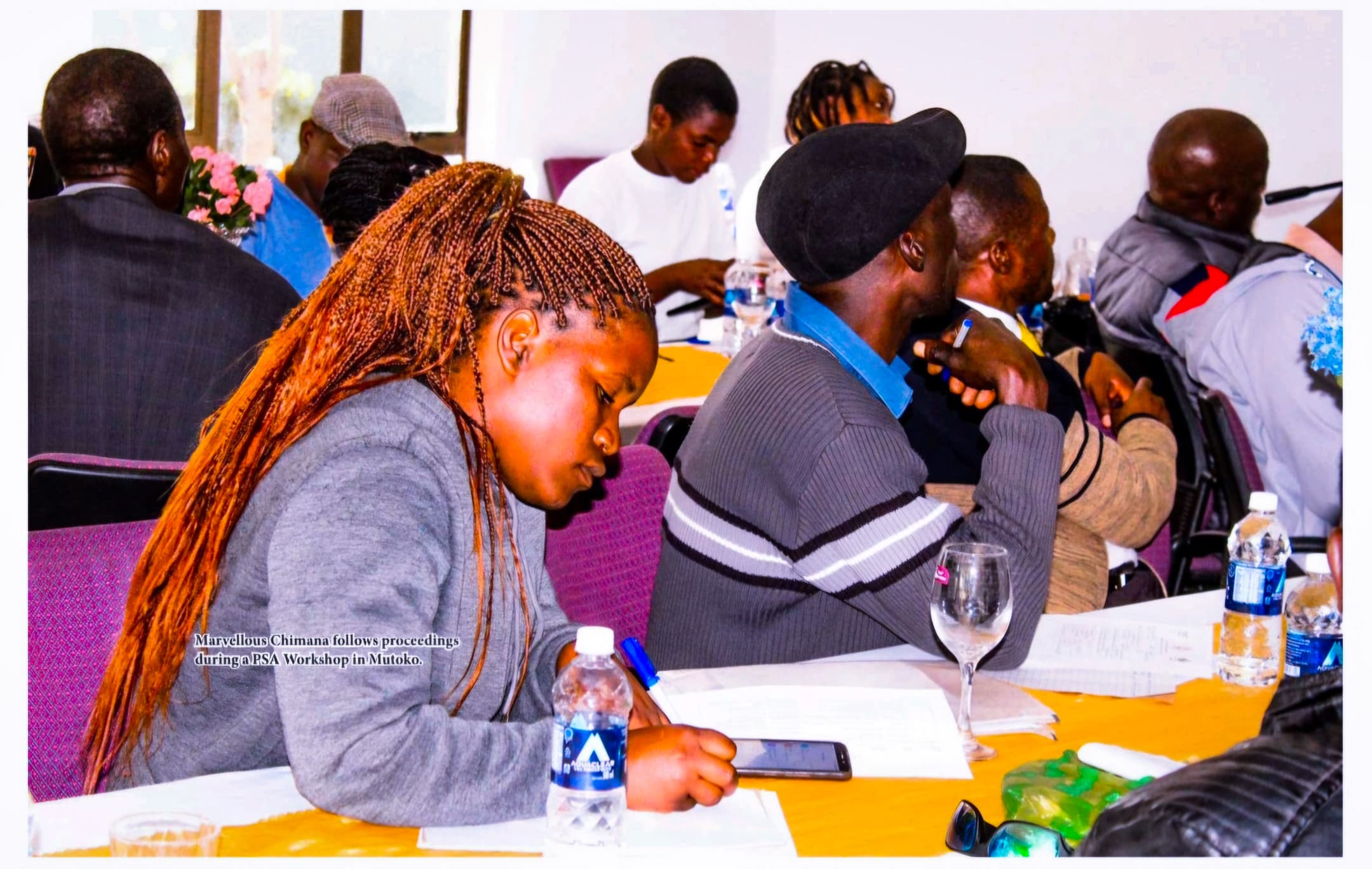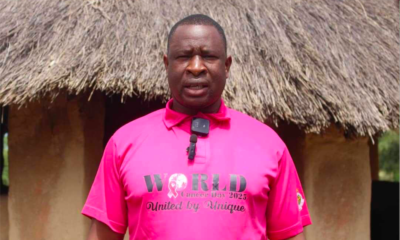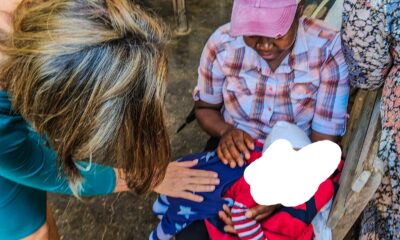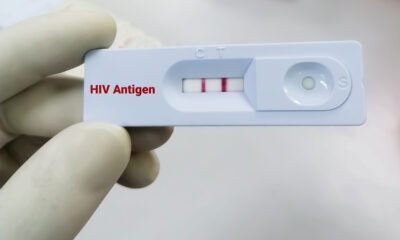NATHAN GUMA
IT is midday, and Marvelous Chimana (25) from Mutoko’s Kawere Village, in Ward 4, is walking through her lush green horticultural garden, as she examines her peas crop.
While the small horticultural garden is thriving, its perimeter consists of severely patched ground and dried stalks scorched in the blistering sun as the country reels under the El nino-induced drought which has destroyed crops countrywide.
“Usually, it is either I spend much time here or selling products from various farming projects,” Chimana tells The NewsHawks.
While Mutoko in Mashonaland East Province, like several other mining areas, has been hit by a surge of HIV/AIDS cases, agroecology is helping Chimana stay out of social ills which are the major drivers of sexually transmitted infections including HIV.
“This is keeping me away from sex work practiced by my peers. I just know that whenever there is something I need; I will just take from my savings. I can fix my lunch. In terms of Sexual and Reproductive Health, I can buy my tablets whenever there is none at the clinic,” Chimana said.
Agroecology is sustainable farming that involves conservative and organic concepts and principals in farming, using inorganic materials such as manure among others.
Chimana traces her agricultural journey to 2019 after attending a training on agro-ecology at Chitekwe, the only youth center in Mutoko under the Partnership for Social Accountability Alliance (PSA).
The alliance which seeks to improve social accountability consists of Action Aid, the Zimbabwe Smallholder and Organic Farmers Forum (Zimsoff), Southern Africa Aids Dissemination Service (SafAids), Basilwizi Trust, Disaster Environmental Management Trust (DEMT) and Voluntary Media Council of Zimbabwe (VMCZ).
It also promotes sexual and reproductive rights (SRHR) and food security in the southern African region while contributing to the realisation of Sadc commitments to reduce new HIV infections on the African continent.
“After the skills building program we had at Chitekwe on agroecology, I saved my lunch money and bought a rabbit. At first, it gave birth to two kits, and six bringing the tally to nine. I am going to expand the project,” she told The NewsHawks.
“I ventured into agro-ecology. I saw that this was easy to manage as I would use less capital while getting more returns. This, because I will be using cheap inputs. For instance, now I am replacing fertilizer with manure and pesticides with organic material.”
Chimana has expanded into piggery and has bought two piglets. She has also tried her hand on watermelons.
“This year, I cultivated watermelons. But they did not perform well as there was little rainfall. But I managed to get back my capital and managed to pay workers. I have also cultivated peas. So whenever I go elsewhere, I will be selling my farm products,” she said.
Another young mother, Talent Humanikwa, says agroecology has helped her re-write her life.
“I was married at a young age while I was 16. I was confused and did not know what to do. So at times, I would ask my husband for money, but at times, this would cascade into gender-based violence. But because of training by DEMT and Zimsoff, which I attended, I was empowered,” Humanikwa says.
“So when I got back to my ward, I was the first youth to start doing her own thing. I now do horticulture and also do poultry. I rear guinea fowls, chickens and pigs. At times when I would ask for money from my husband, he would ask me to work like other women.”
Like Chimana, she has now ventured into poultry, rearing Guinea fowls, chickens and pigs.
Humanikwa says agro-ecology has gained her recognition and she is now a peer leader at the National Aids Council (NAC) in Mutoko.
“Sometimes people of my age end up engaging into sex work thereby destroying their future. I have ten pigeons, 12 chickens, three guinea pigs and two pigs. I have okra, vegetables and peas among others. When ripe, we go and sell these at Gwaza Market,” she says.
Zimsoff chairperson in Mutoko, Henry Gora says farming is giving a new start to young people in the area, most of whose dreams have been derailed by HIV/AIDS and early marriage.
“Most young people have had little interest in farming. Most of them want projects that would give them instant money. We had little chance of teaching them, but in that short time, they have learnt so much,” Gora told The NewsHawks.
“Since we started working with them, we have never faced a problem with any of them. We are even helping more young people whose lives have been affected by social ills affecting our community. We are helping them and giving them a new start.”
The state of health facilities has been precarious, particularly in the fight against HIV and AIDS, according to a baseline survey by DEMT.
Findings by the report have shown that Mutoko has inadequate health facilities, which has made it difficult for people to access critical medication, particularly for sexual reproductive health (SRH).
According to the survey, a significant number of people disagreed when asked on the adequacy, availability and quality of Pre-Exposure Prophylaxis (PreP) and Post-Exposure Prophylaxis (PeP) at their local health centres.
These are crucial in the fight against HIV/AIDS and other sexually transmitted infections.
“More so, a considerable number of people professed doubt or lack of knowledge with regards to the availability of PreP and PeP which in turn means that they have not benefited on the service or have not sufficiently accessed PreP and PeP,” reads the survey.
More respondents also said that they have been unable to access health services, indicating that they have paid an amount between US$1 to US$6.00 to access sexual reproductive health services at health institutions.
“This is quite on the high and impact on access to sexual reproductive health services considering that the majority of young people who participated in the baseline survey were either unemployed or self-employed as sex workers,” reads the survey.
“As fundamental human rights, sexual reproductive health services should be affordable and accessible to everyone, particularly key and vulnerable populations in remote rural areas.”
According to statistics by the National Aids Council (NAC), a total of 19 566 people died of
Aids related illnesses in the country last year.
The major driving factor of HIV cases has been unsafe sexual intercourse occurring mainly in mining areas and border settlements.
Consequently, Matabeleland South, with mining activity and transnational movements has the highest HIV prevalence in the country at 17.3%, while Mashonaland East, where Mutoko lies, has 9.83% and the diamond-rich Manicaland has 9.35%.
According to 2022 statistics by the Global Fund, Zimbabwe’s national HIV incidence has declined by over 50% over the past ten years, with a decline in new HIV infections for all age groups.
The number of new HIV infections among adults has reduced by 7% and 9% among children from 2021 to 2022.
In the same period, the number of new HIV infections declined by 6% among people aged 10-19 and by 7% among people aged 15-24. Similarly, adult (15-49 years) prevalence has fallen from its peak of 26.5% in 1997 to 11% in 2021 (2022 HIV Estimates).
According to the 2022 spectrum estimates, 1,310,438 people are living with HIV.





















